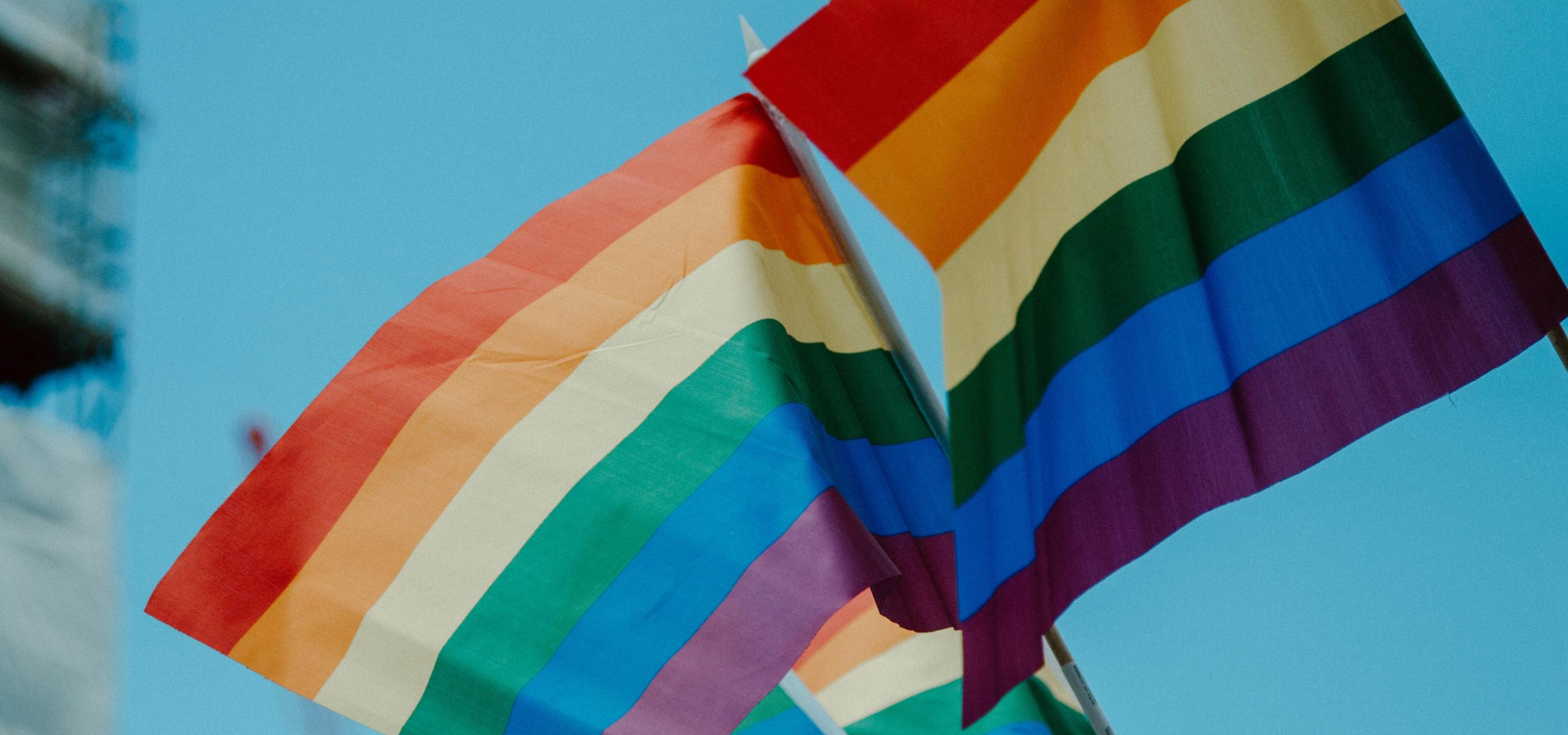
Twenty years ago, sexuality and gender identity were not readily spoken about within the law school or the curriculum.
Coming Out Day 2021 celebrates the act of coming out as a member of the LGBTQIA+ community: today, we reflect on the progress the Australian National University (ANU) College of Law and our surrounding community are making towards exemplifying LGBTQIA+ inclusion and allyship.
Amy Kilpatrick (LLB (Hons) '02) is an Australian National University (ANU) College of Law graduate, former clinical course convenor and now Deputy General Counsel at ANU.
Having been a member of the ANU community for more than twenty years, Amy has seen how the discourse around LGBTQIA+ issues has changed.
“Twenty years ago, sexuality and gender identity were not readily spoken about within the law school or the curriculum. As a student, I saw that only staff member was ‘out’ in the faculty, and no course content was relevant to the core inclusion competencies required to provide legal services to LGBTQIA+ individuals and families. This felt alienating.”
She points to events such as today’s ANU College of Law LGBTIQA+ alumni panel as evidence that things are shifting.
“Just the existence of this panel is evidence that things have changed. Wayne Morgan’s course on sexuality and the law has also been a beacon and safe haven for students over the years as well as driving pedagogy in the area. We need more “out” faculty and for all courses to incorporate social justice and content outside the dominate social paradigm.”
Earlier this month, the annual ANU Gender & Sexuality Moot took place, where competitors challenged an international law dispute regarding the ability of intersex children to consent to surgical interventions, and the application of the International Covenant on Civil and Political Rights and the Convention on the Rights of the Child.
“The moot aims to raise awareness about issues facing the LGBTQIA+ community and the ways in which the law can address, as well as compound, these injustices,” said organiser Madeleine Castles (BA/LLB '20).
“It enables the competitors and the wider community to think critically about these issues, not only in a legal sense, but also to consider the social, political and cultural implications of the law.”
Amy says that being a visible and strong support of LGBTQIA+ members of our community is imperative to creating a healthy workplace and university.
It is also important that these values are reflected in our teaching content, she says.
“There are legal issues which are specific to the LGBTQIA+ community which need to be considered in curricula.”
Amy points out that underrepresentation of these issues at the tertiary level can manifest in legal service provision, too.
“On the whole, these are lacking presently and it is impacting access to justice for the community.”
What does it mean to be a good ally, according to Amy?
“Being seen, and being willing to stand in front of and beside vulnerable members of our community.”
ANU students can connect with the ANU Queer* Department, and staff can complete Ally Training and join the ANU Ally Network.
If this article has raised any issue for you, you can access one of the many services available to the ANU and broader Canberra community. These services are available for all members of the community and offer confidential support, crisis counselling or immediate mental health support.
Lifeline - personal crisis counselling
T: 13 11 14
W: lifeline.org.au
Availability: Round the clock - 24 hours a day, 7 days a week
QLife
T: 1800 184 527
W: qlife.org.au
Web chat function available online
Availability: 3pm-midnight, 7 days a week
QLife provides an anonymous and free LGBTI peer support and referral for people wanting to talk about sexuality, identity, gender, bodies, feelings or relationships.
Kid's Helpline
T: 1800 55 1800
W: kidshelpline.com.au
Availability: Round the clock - 24 hours a day, 7 days a week
Kid's Helpline is a free, confidential and private phone and online counselling service that is available for people aged 5 to 25 years old.
ACT Access Mental Health
T: 1800 629 354 (free call except from mobiles) or 02 6205 1065
Availability: Round the clock - 24 hours a day, 7 days a week